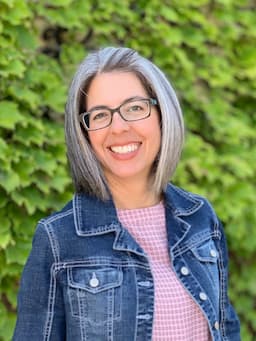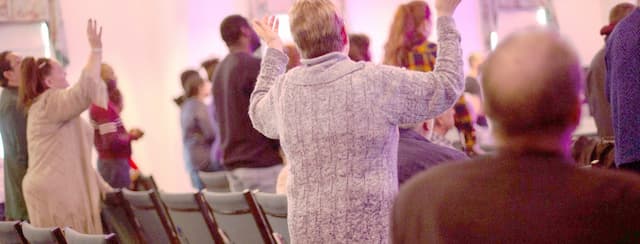Who is Disabled? The Paralympics and the Question of Identity — Nicole O'Meara

Waiting in line with a TV nearby, I watched two triathletes cross a finish line. One collapsed in exhaustion while her coach quickly wrapped a cool wet towel around her neck. The other trotted by with energy to spare. The sound on the TV was turned off which should have made it nearly impossible to know which race I was watching. But not this race. A highlight reel showed one athlete running with a prosthetic leg, one swimming with only one arm, and one crossing the finish line tethered to her Guide. I knew immediately, I was watching the Paralympics taking place in Tokyo.
As I watched, curiosity struck: Were these Paralympians born with their disability? What qualified them to compete in the Paralympics? With all that they had to overcome, what inspired them to race for gold?
Then, a startling question derailed me. Would I be a Paralympian? Am I disabled?
WHO IS DISABLED?
Before I could answer my own question, I had to admit a bit of ignorance: I wasn’t entirely sure I understood the term “disabled.” Not technically. So, I looked it up.
Webster’s says disabled means “impaired or limited by a physical, mental, cognitive, or developmental condition.” Interestingly it also means, “rendered inoperative (as by being damaged or deliberately altered).”
As I thought of the athletes I watched, this definition matched what I saw. Still, I wondered if it applied to me. So I dug deeper.
The International Olympic Committee only allows athletes who have an eligible impairment to compete in the Paralympics. Not all sports require the same impairment but all athletes must have a required impairment for their sport. An athlete wishing to compete in the Paralympics must have some kind of disability (remember the first definition) and their impairment must be significant enough to limit their participation in their sport without accommodations. “If you have an eligible impairment but do not meet the minimal impairment criteria you cannot compete in that Para sport. In this case, it is not questioned whether or not you have impairment, but whether or not your impairment leads to significant activity limitation to participate in that Para sport.” (International Paralympic Committee Athlete Reference Guide, Feb 2017 – https://www.paralympic.org/classification-code)
Armed with this new understanding, I evaluated my body. The rare form of blindness I was born with has left me with impaired vision. Check. The loss of part of my lungs limits my breathing capacity. Check. My spine is damaged limiting my range of movement, but perhaps not significantly enough to need accommodations. No check.
By definition, it turns out, I am disabled and would probably qualify for the Paralympics.
But when I think of who I am, the word disabled does not compute. I attribute that to the sanctifying work of the Holy Spirit within me.
THE WORK OF IDENTITY
“Disabled” is a label I have never attached to my identity. My parents never called me disabled. The DMV hasn’t issued me a placard with that word on it. Even as I went to the dictionary to read the definition of disabled, the word felt wrong and completely unfamiliar to me as an identifier. And yet, I knew (we ALL knew) I was “different.” That’s an identifier that feels very familiar to me.
Growing up, I wasn’t like other kids my age. Big glasses and poor balance made it obvious that my eyes weren’t “normal.” I often tripped off curbs and bumped into walls, embarrassing moments that continue to this day. I struggled privately with feelings of weakness and ugliness. I wished I was stronger and had better balance. Whether at school or at home, I didn’t feel I measured up. Still, I was loved and I knew it and that made up for a lot.
During the years when a person begins to shape their own identity, God graciously provided people to speak into the process for me. Loving parents, a devoted youth pastor, and special women who took me under their wings all spoke truth into me, helping me discover the person God says I am.
But, by far, the most impactful person God put in my life was my best friend in high school. God gave me this close friend when I had none. With every car ride and every late night conversation over 99 cent burritos at Taco Bell, this friend taught me that I had value, that I was worth pursuing as a friend. Without preaching to me, this friend convinced me that I had the ability, despite my disabilities, to bring joy to someone else.
I did nothing to earn this love, and at times that baffled me. I couldn’t wrap my mind around the devotion of this friend when I knew I had done nothing to earn to it. This love was given freely. It mattered not that I couldn’t watch a 3D movie or see the hidden image inside those Magic Eye pictures popular in the 90s. By loving me and being interested in me, this friend became a living model of God’s love for me, a love that is given freely, just as I am. Being identified as “different” had no impact on this kind of love. (Neither would being identified as “normal,” by the way.)
Love is the tool by which God shapes your identity. By his word, he shaped your physical body. By his grace, he shapes your identity.
WHO DEFINES THE IDENTIFIERS?
My original question of how the paralympian became disabled no longer seems relevant. Is a person identified as “disabled” by the method in which they become disabled? No.
I’ve said this before and I’ll keep saying it, God doesn’t make mistakes. He doesn’t have a Plan B. He intended for me to have disabilities. He formed my eye, broken. He formed my lungs, broken. He formed my spine, broken. “Disabled” isn’t a label God uses.
Brennan Manning said,
“Define yourself radically as one beloved by God. This is the true self. Every other identity is illusion.”
It took years for me to accept that I am beloved. First, I had to accept that God made my body broken on purpose, for a purpose. I had to believe that I didn’t have to “make up the difference” for my disabilities by achieving in non-physical areas like academics, areas that did not depended on perfect vision and healthy lungs. I needed to trust that God loved me just they way I am and that I could be loved by others just the way I am…. that in fact, I could love myself just the way I am.
The crazy part of all of this is that I could never have come to these conclusions on my own. I needed the Holy Spirit to speak these truths to me because I was blind to them (John 16:13-16).
God defines who I am. He claimed me as his daughter, not the other way around (Isaiah 43:1, 1 John 3:1). My faith, by which I am given an eternal inheritance as a child of God, is a work of grace. All the other aspects of me, my strengths and weaknesses, talents and disabilities, are just that, aspects. They are my characteristics. They help others identify me. But they do not define me. It is only God who decides who I am and he has decided I am his beloved.
WHERE IS YOUR FOCUS?
Do you focus on your abilities, on what you have achieved? Do you focus on your inabilities/disabilities, or on where you have failed? I think we all do that. At times, we focus on what works and at other times we focus on what is broken. The challenge is to move our focus off ourselves and fix it on our Father God.
Lock eyes with his loving gaze. You are his beloved. Let that sink in.
Let’s Be Email Friends
Do you struggle to believe you are God’s beloved? I’ve got 17 Quick Resources to encourage you. These articles and podcasts will take you from discouraged to hopeful in 0-30 minutes (depending on what you pick).
I’ve been where you are. These resources will help you find hope, right now.






